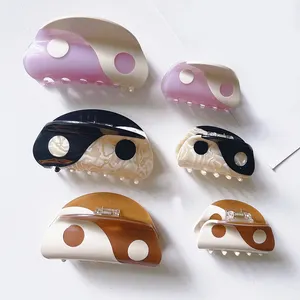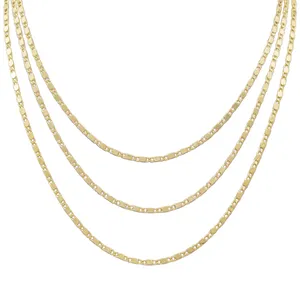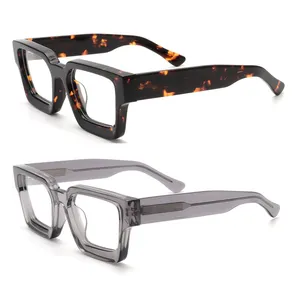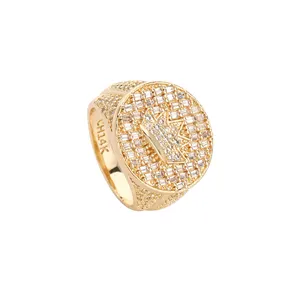Sektörünüzde popüler


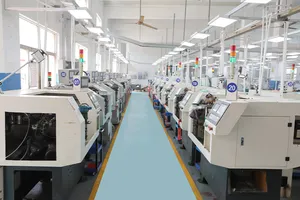



Chicago vida özelleştirilmiş paslanmaz çelik pirinç chicago vida bağlama sonrası erkek ve dişi vida
₺0,3464 - ₺8,66
Minimum Sipariş Miktarı: 1000 Adet
Parça başına nakliye: ₺3,47







Siyah torx hex düz tava kafa kendini vurarak tornillos çapraz başparmak makinesi vidalı cıvata paslanmaz çelik bağlantı elemanı pirinç titanyum vida
₺1,74 - ₺6,93
Minimum Sipariş Miktarı: 1000 Adet
Parça başına nakliye: ₺2,08







M3 m4 m5 m6 m8 6061 7075 renkli kafes düz kafa paslanmaz çelik titanyum anodize alüminyum kap cıvata vida
₺0,3464 - ₺1,74
Minimum Sipariş Miktarı: 200 Adet
Parça başına nakliye: ₺131,62







Paslanmaz karbon çelik pan kafes düz altıgen başlı soket phillips allen torx özel ekstra uzun makine vidaları
₺6,93 - ₺17,32
Minimum Sipariş Miktarı: 1000 Birim

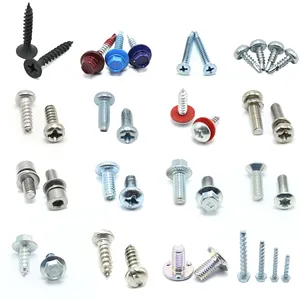





ODM OEM alçıpan vida karbon çelik kombinasyon çapraz tava altıgen hillock kafa kendini vurarak akıllı vida
₺0,3464
Minimum Sipariş Miktarı: 1000 Adet






Implant kullanımı için titanyum diş vida sonrası
₺554,53 - ₺1.097,98
Minimum Sipariş Miktarı: 100 Paket






Endüstriyel ortopedik implantlar spinal pedicle yüksek kalite gr5 titanyum disk kafa vidalar diş titanyum vida sonrası
₺1,74 - ₺5,20
Minimum Sipariş Miktarı: 100 Adet
Parça başına nakliye: ₺530,98






Chicago Vidalar Kemer Vida Perçin Bağlama Vidası Direkleri 4.5MM
₺2,08
Minimum Sipariş Miktarı: 100000 Adet






Katı pirinç deri kemer cüzdan Chicago vida 12.7Mm Chicago Post ve vida alüminyum Chicago vida pirinç 5Mm uzunluk
₺2,08 - ₺2,78
Minimum Sipariş Miktarı: 20000 Adet






Kırmızı yanmış titanyum cıvata motosiklet modifiye flanş vidalar M6 YZF-R1 R3 R6 R15 03 titanyum Hex vidalar motosikletler için
₺0,3464 - ₺1,39
Minimum Sipariş Miktarı: 1000 Adet
Parça başına nakliye: ₺1,04






Sıcak satış anodize diş vida sonrası flanş M7 cıvata çelik 12 nokta Gr5 titanyum motosiklet cıvata
Gönderime Hazır
₺1,74 - ₺3,47
Minimum Sipariş Miktarı: 100 Paket
Parça başına nakliye: ₺1.184.242,12






Toplu diş sonrası Tornillos alçıpan altıgen rondela kafa kendinden delme vidalar testere seti kesme Tx20 vida
₺0,3464
Minimum Sipariş Miktarı: 1000 Adet
Parça başına nakliye: ₺6,24
İlgili Aramalar:
diş titanyum sınıf 5diş büküm matkap implant cerrahidiş cad titanyumdiş freze titanyum boşluklarıtedarik diş metalpaslanmaz çelik diş vida sonrasıeuro diş vida sonrasıiso diş çapakdiş bitirme metalpaslanmaz diş kasetdiş alaşım titanyum diskcastrator burdizzo 12bufabtitanyum contra açısıcerrahi kemik tokmak paslanmaz çelik






ASTM F 136 Gr5 TI-6AL-4V ELI tıbbi implant kemik titanyum çubuk vida implantları
₺692,73 - ₺1.212,28
Minimum Sipariş Miktarı: 10 Kilogram





Toptan titanyum ortodontik diş Implant mikro vida sonrası
₺554,53 - ₺1.097,98
Minimum Sipariş Miktarı: 100 Paket






Diş vidalı titanyum ısı değiştirici için klasik gr5 mikro m1.2 titanyum vida sonrası
₺1,74 - ₺5,20
Minimum Sipariş Miktarı: 100 Adet
Parça başına nakliye: ₺530,98






M3 G5 M5 titanyum kendinden dokunarak vidalar sınıf 5 M3 6mm yanmış kırmızı M5 X 15mm Torx kendini dokunarak cıvata titanyum vida
₺0,6928
Minimum Sipariş Miktarı: 20000 Adet






Sıcak satış euro sonrası diş sonrası titanyum vidalar tıbbi titanyum vidalar m2
₺1,74 - ₺5,20
Minimum Sipariş Miktarı: 100 Adet
Parça başına nakliye: ₺530,98






Metalik düz kafa havşa gr5 saf titanyum diş vida sonrası konik titanyum titanium titanyum allen ŞAPKA vida
₺1,74 - ₺5,20
Minimum Sipariş Miktarı: 100 Adet
Parça başına nakliye: ₺530,98






LK-R51A diş titanyum vida mesajları altın kaplama/paslanmaz çelik
₺301,34 - ₺484,91
Minimum Sipariş Miktarı: 20 Adet






25 yıllık üretici çin tedarik ALS diş vida sonrası dolum titanyum altın kaplama
₺311,73 - ₺415,64
Minimum Sipariş Miktarı: 100 Kutu




Diş vida sonrası altın kaplama/paslanmaz çelik/titanyum diş kiti mavi kutu 120 adet 240 adet 12 adet
₺450,28 - ₺1.316,18
Minimum Sipariş Miktarı: 10 Kutu






Açık Transfer diş implantları vida titanyum vida sonrası diş için vida
₺34,64 - ₺173,19
Minimum Sipariş Miktarı: 1 Adet






Sıcak satış düşük fiyat toptan titanyum ortodontik diş Implant mikro vida sonrası paslanmaz çelik vida sonrası diş vida sonrası
₺450,28 - ₺623,46
Minimum Sipariş Miktarı: 5 Takım





Altın kaplama veya titanyum kaplı paslanmaz çelik diş vida sonrası
Gönderime Hazır
₺346,37 - ₺432,96
Minimum Sipariş Miktarı: 1 Takım
Parça başına nakliye: ₺373,73





Büyük kalite diş vida mesajları diş hekimliği titanyum vida sonrası diş hekimi aracı için 120 adet diş pimleri malzemeleri
₺415,64 - ₺519,55
Minimum Sipariş Miktarı: 100 Adet






120 adet/kutu diş Implant malzemesi mikro vida Post altin kaplama/paslanmaz çelik/titanyum vida sonrası diş ortodonti
₺224,45 - ₺608,91
Minimum Sipariş Miktarı: 1 Kutu





Altın kaplama veya titanyum kaplı paslanmaz çelik diş vida sonrası
₺692,73 - ₺865,91
Minimum Sipariş Miktarı: 10 Adet
Parça başına nakliye: ₺204,01





Diş vida sonrası/paslanmaz çelik, altın kaplama, veya titanyum kaplı
₺311,73 - ₺865,91
Minimum Sipariş Miktarı: 10 Kutu






[Aifan diş] yüksek kaliteli paslanmaz çelik Euro sonrası çeşitli boyut diş vida sonrası
₺311,73 - ₺381,00
Minimum Sipariş Miktarı: 100 Paket






Kök kanal dolum yedekler tırnak için 240 adet/kutu altın kaplama diş konik vida mesajları
₺467,60 - ₺623,46
Minimum Sipariş Miktarı: 2 Adet








Fabrika fiyat yüksek performanslı diş ürün kök kanal kullanımı için altın kaplama endo diş vida sonrası diş malzeme vida sonrası
₺296,84 - ₺494,96
Minimum Sipariş Miktarı: 50 Kutu






Yeni tip ortodonti titanyum mikro Implant vida aracı ucuz fiyat ile
₺450,28 - ₺554,19
Minimum Sipariş Miktarı: 2 Adet






Toptan paslanmaz çelik ortodontik diş Implant mikro Mini vida sonrası diş Implant vida Pissco tarafından yapılan özelleştirilmiş ambalaj
₺173,19 - ₺207,82
Minimum Sipariş Miktarı: 50 Adet






30 adet diş saf titanyum çeşitli konik vida mesajları kök kanal pimleri tüm boyut
₺34,64 - ₺138,55
Minimum Sipariş Miktarı: 50 Adet






Üst satış diş konik mesajları titanyum ortopedik cerrahi vidalar fiyat titanyum vida m6
₺1,74 - ₺5,20
Minimum Sipariş Miktarı: 100 Adet
Parça başına nakliye: ₺530,98






Fabrika fiyat tedarik titanyum diş vida sonrası konik titanyum vida sonrası (konik 0.8mm/ 1.0mm) çapraz anahtarlı ve raybaları
₺519,55 - ₺1.039,09
Minimum Sipariş Miktarı: 20 Kutu






Satılık diş mini vida titanyum vida diş diş vida sonrası
₺34,64 - ₺173,19
Minimum Sipariş Miktarı: 1 Adet





Diş vida sonrası altın kaplama/paslanmaz çelik/titanyum diş kiti mavi kutu 120 adet 240 adet 12 adet
₺450,28 - ₺1.316,18
Minimum Sipariş Miktarı: 10 Kutu






Satılık diş mini vida diş titanyum vida diş genişleme vida
₺34,64 - ₺173,19
Minimum Sipariş Miktarı: 1 Adet
En iyi kategoriler
diş titanyum vida sonrası hakkında
Alibaba.com 111 diş titanyum vida sonrası ürünü sunuyor. kesme, kaynak ve bükme gibi size yönelik çok çeşitli diş titanyum vida sonrası seçenekleri bulunmaktadır. endüstriyel, tıbbi diş titanyum vida sonrası arasından ve ayrıca değil toz diş titanyum vida sonrası arasından seçim yapabilirsiniz. Ve diş titanyum vida sonrası ürününün dövme olmasını seçebilirsiniz.
